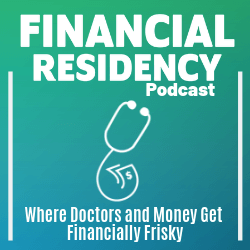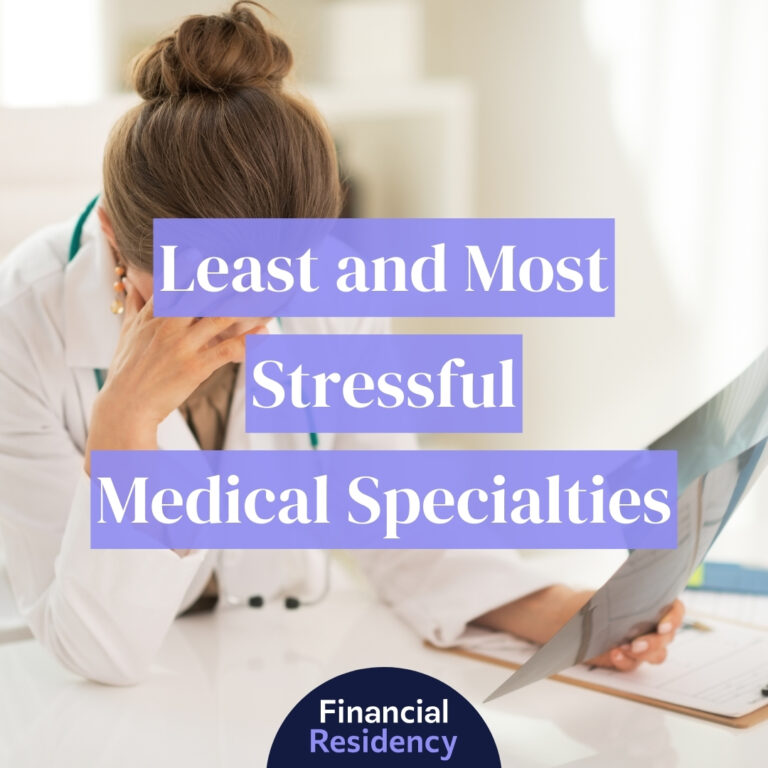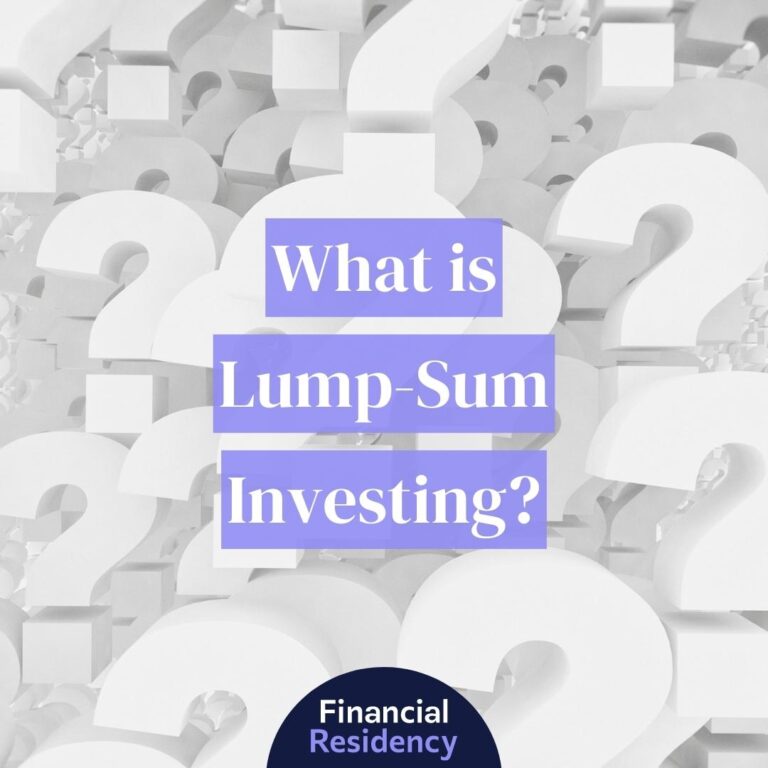Financial Mess? April Fools That!
Have you taken your turn being financially foolish? Were you frustrated by the grief it caused? Did you make a vow to learn how to handle your money in an effective way? A financial mess can be quite painful. It’s all a part of the learning curve for those who haven’t quite figured out their finances. And most people haven’t!
Our culture doesn’t see it as necessary.
But a financial mess may be just the thing to spur you on to a secure future and financial freedom–which in the end is a victory!
Nevertheless, I would love for you to avoid a financial mess and lead you straight to success.
Once you know the pitfalls, it’s easier than you think to avoid them.
Continue reading to discover the top ten financial insights that we wish were April Fools jokes!
#10. You Make the Big Bucks: Buy Whatever You Want!
Are you under the impression that since you will be a high earning physician you won’t need to track your spending? April Fools!
The “B” word gets a bad rap, but it’s actually a beautiful thing. In order to get what you want out of life and have a secure future, you need to have a goal. Does that sound lofty? It’s not really. A goal is just a personalized target. It is completely tailored to your needs and dreams!
What does a budget have to do with your goals? How will you get to where you want to go? They are linked because a budget will help you keep your spending in perspective on your goals. A budget also helps you build a secure future. With a budget, you can eliminate debt and build positive financial habits.
A budget starts with planning and cash flow in mind. How much do you have coming in? Where is it all going? Where do you want it to go?
While you may have a high income you still need to know how much you are spending. Keeping track of this basic information allows you to figure out how much you need to put towards savings and investments.
A budget also allows you to pay upfront for trips or other big ticket items, instead of falling into the trap of using bank credit or consumer credit with their interest rates, hidden fees–and potential late fees. You can think of a budget as the cornerstone of a secure future.
Don’t spend whatever you want! A budget helps you avoid frittering away your hard earned money and derailing the plans (including retirement) that truly bring you happiness!
#9. Not Having Estate Planning Documents
Are your children up for grabs –if the worst happens?
Will there be a ringside fight over your estate in the event of your death?
Who exactly will make decisions for your care if you are incapacitated?
So, you have children–but you haven’t planned for their future, in the event of serious disability or death. April Fools!
It’s a serious and important business to have your will, power of attorney and health care directives all in place in the event of a disaster. I’ll bet you want our children to have a secure future.
You want your children to go to someone whose values you agree with whole-heartedly
You want to avoid your estate going through probate.
You want to prevent any disagreements about your wishes!
#8. Diversification Across Banks
This is not what you think it is. This does not mean multiple accounts in multiple banks. April Fools!
It actually means to diversify your stocks. There are 3,600 different stocks listed on our exchanges–so diversify away! You want your money where it will work for you. Where it will contribute to your financial freedom.
Why diversify? Think of Enron.
The people who were investing in this large corporation were doing great. They were ecstatic about making money hand over fist. They thought they had a secure future.
That was before it was found out that this huge corporation was involved in corruption and accounting fraud.
That was before the loss of jobs, pensions, and shareholders losing over 60 billion before the company went bankrupt.
Lesson to be learned: Don’t keep all your eggs in one basket.
#7. The Price is Right: A Million Dollar Estate
You won the lotto, er…the job offer. A one year contract as a new attending physician in the city of your choice.
You’ll need a place to live right?
That million dollar home on the corner with the entertainment patio and pool is perfect for a new attending physician after all your income is about to increase substantially.
But then you realize this job sucks and you can’t stand your small minded co-workers. The city is ugly and there is too much traffic.
April Fools! You are stuck…at least for a while.
The percentages of new attending physicians who leave their first job are high. They may have to consider the serious financial consequences they face. There might be penalties–and that is not including your new million dollar home.
The lesson in all of this?
Wait for your dream home.
When you are taking your first job buy a starter home.
Keep in mind that your primary residence is not an investment. It’s an option when you are considering where to raise your family. It may be a place to build a secure future. It is also true that the equity in your home could be considered an asset. However, your residence is also a liability that will cost you money every month.
We talk a lot about financial freedom here but sometimes the freedom to leave an unsatisfactory situation is equally sweet!
#6. Going With the Flow
Things are going swimmingly. The bills are paid, the pantry is stocked and you are busy.
But there is a hidden problem…the drain. April Fools!
While you are getting on with life, the costs of utility bills and auto insurance and the price of unused subscriptions are being increased and drained away from your bank account.
The utility, insurance and magazine companies are banking on us going with the flow.
My wife and I saved 55% when we moved from Las Vegas to San Diego by price shopping and changing to Geico.
How do you prevent good money from being stealthily siphoned away without your notice? You take the time to notice!
Price shop every couple of years and take stock of your subscriptions.
#5. Real Estate Investments
Home Sweet Home
The primary residence that we buy is not an investment. April Fools!
Why not? It can’t be. Besides the fact that if you sell the home you’ll use the equity to buy a new home, there are other reasons. Check the lists below:
- Utilities
- Property Taxes
- Homeowners Insurance
- Private Mortgage Insurance (occasionally)
Then there is the maintenance!
- Roofing
- Flooring
- Fencing
- Plumbing
- Ductwork
- HVAC units
Whew! You get the picture. Including paying the mortgage you are spending money on the home. It’s your shelter and you are maintaining it.
Investments-Real Estate Style
We can’t control if our investment loses money, but we can be sure that we don’t buy cash flow negative real estate investments.
The money in real estate is made on the purchase, not on the sale. Plus, there are many different ways to own real estate, but regardless of how you choose to own it, you want to make sure it is a profitable purchase. After all, this real estate is being used to build your secure future.
How do you make sure that you are making money on every door you buy? Consider these four things when purchasing:
- Size
- Price
- Location
- Condition
Do your research before investing in real estate so that you don’t buy into cash flow negative real estate investments!
4. Playing Sabotage
Do you have credit card debt? Are you still adding to that debt (aka using the card)? April Fools!
Although, approximately $10-$15k of credit card debt is okay after your residency and while you are searching for a job, it is not okay to let the debt grow. With every new purchase, you are increasing your amount of debt and adding the interest on–it can grow fast.
In addition to adding to your burden of debt, there is another way you are sabotaging yourself: If you are not taking care of your credit card debt, then you are likely not saving for retirement.
Carrying the weight of having debt and shortchanging your retirement accounts is more than just foolish, it’s dangerous. Consumer debt is a threat to building a secure future.
#3. College Accounts
Are you saving for your children’s college? If you are doing that before you’ve maxed out your own retirement accounts–April Fools!
When you fly the friendly skies, the flight attendant will warn you in the event of an emergency to put on your oxygen mask first, before helping anyone else.
This is the same concept of deciding between saving for your children’s education or your retirement. There are other options for funding education. However, with the average life span lengthening, the lack of an adequate retirement plan could mean that you run out of money before your retirement ends.
This will put an additional burden on your children during the years when they are raising their family. It might threaten the secure future of all parties involved.
Remember: They can put debt on their education; you can’t put debt on retirement.
#2. Stopping by the Toy Store
Are you carrying $500,000 in student debt…and you are shopping for a Tesla? April Fools!
The worst thing you can do is buy toys before you start your real job.
Or in the first years after you become a new attending physician.
Why? Those toys might interfere with creating a plan to pay down the debt.
Planning to purchase an extravagant house or car when your career is just starting out is an indication of lifestyle creep.
Lifestyle creep leads to horrible money behaviors. It can ruin your chances for financial independence and early retirement. It might jeopardize your secure future. In the beginning, it is best to reign in your impulses, set a plan for demolishing your debt, learn about the “B” word and investments. This is the time to plan for the future.
Keeping the future in mine…lifestyle creep is the number one mistake new physicians make.
My advice? Begin with the end in mind!
#1. Insurance as an Investment
Insurance is a hot topic for me. I wholeheartedly believe that whole life is for the broke life.
Why do I believe this so strongly?
Because insurance is not an investment. Insurance is Insurance. Investments are investments.
Insurance is a product that is meant to be sold–and it is!
Insurance is frequently sold to physicians!
Why is selling insurance to doctors so popular? Because to put it simply, doctors have a target on their back. I disagree with physicians buying whole life because it is for a very small segment of the population and statistically it is very unlikely you will need whole life.
What you do need is term and disability insurance as protection over your income. If something happened to destroy your income and career, the right insurance would provide relief, when you need it most.
Sometimes being a new attending physician can be tricky. Navigating the financial pressures of medical school and residency, only to come out on the other side with a large increase in pay can throw the most steady people into relief spending.
While one journey has come to fruition (reaching your goal of becoming a physician), another has just begun. The journey that is just beginning is an exciting one that will rely on a clear cut plan for financial success, it will mean becoming financially literate and reigning in your relief to finally have some wiggle room in your budget (alright, a lot of wiggle room).
Well, there you have it the ten most likely things to trip you up as you reach for financial freedom. There is a positive side to this daunting journey. You’ve taken the first step. You are here to read and begin the education process. One step at a time can take you far.
I am here to help you learn, grow, prosper and build a secure future! I hope you’ve enjoyed reading the top ten financial mistakes!
Did this financial faux pas resonate with you? Which one and how did you handle it? Find Financial Residency on Facebook, but first, be sure to subscribe to the show!








